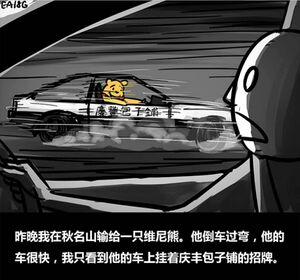倒車
注意!該條目的內容不符合中國共產黨的官方說法
繼續瀏覽會被綠壩娘和⭐諧喲
簡介編輯
在習的統治下,全國文娛開始大蕭條,特別是修憲之後,取消了連任期限,而議員們又都是當花瓶的投票機器,民主開始消失,取而代之的是習的獨裁,夢回1916[1],修憲之後,開始有大量網友用倒車一詞形容習的政策,後來大量粉紅色作品的播出更是助長了個人崇拜,並使得這一詞語開始廣泛出現。
評論編輯
歷史學者孫萬國認為這種對習近平的個人崇拜相當集權獨裁,要求意識形態上的忠誠:宣傳部門塑造習近平反西方、對歐美普世價值不屑一顧、以恐懼來統治、打壓持不同政見者、以及對媒體、教育及文化收緊控制,是在走毛澤東崇拜的回頭路。而一些西方國家的民間也認為習近平修憲取消連任限制是在「開歷史倒車」。[2]
注釋與外部連結編輯
- ↑ 袁世凱稱帝
- ↑ Philip Wen. China's Great Leap Backwards: Xi Jinping and the cult of Mao. Sydney Morning Herald. 2016-05-15 [引用時間: 2019-01-01]. (原始內容存檔於2019-01-02) (English).
But perhaps the most stunning characteristic shared with Mao has been a growing personality cult around Xi fanned by the central propaganda department, which has produced some jarring results: newspaper front-pages dominated by Xi's every move, saccharine music videos professing love and loyalty to the leader."It does harken back to Mao, this personality cult, the concentration of power by casting aside the collective leadership … now his style is quite dictatorial, demanding loyalty ideologically," says Sun, the historian. "He's anti-Western, dismissive of universal values and he also rules by fear, in the form of the anti-corrupt campaigns and cracking down on dissent and tightening the control on media, education, culture – all this does harken back to Mao's practice."
